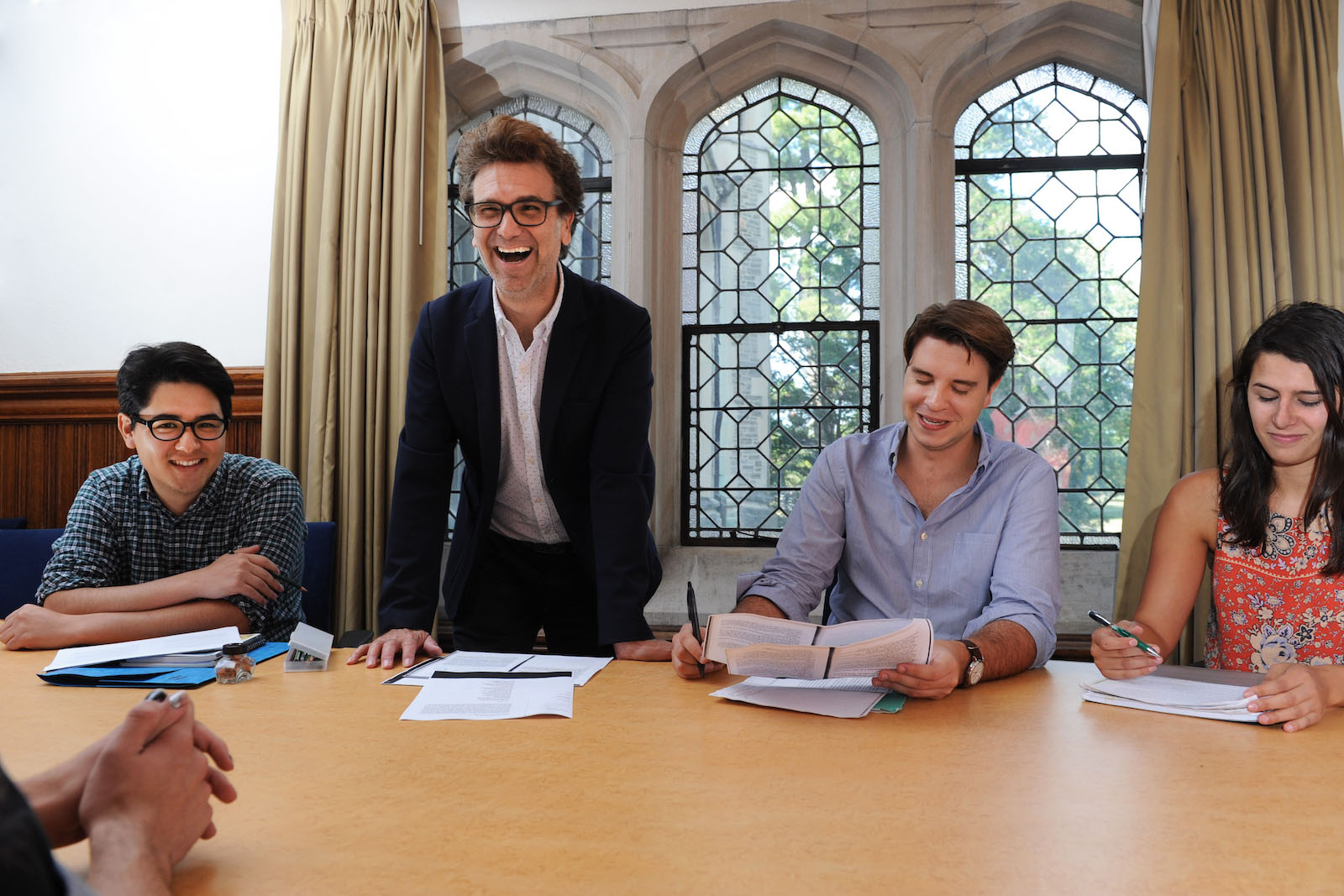English Professor Wins O. Henry Award for Short Story
When the COVID-19 pandemic surged into the Northeast in the spring of 2020, Visiting Associate Professor of English David Means struggled with his forced isolation from his students and coworkers. “(It) was a completely different kind of isolation than the kind you need to create something, to daydream and allow yourself to have visions,” Means recalled.
Nevertheless, Means was able to channel the stress and loneliness triggered by the pandemic to bring his characters to life in a short story he had begun to write earlier. The resulting work, “Two Nurses, Smoking,” published last year in the New Yorker, earned him an O. Henry Prize, the oldest and one of the most prestigious prizes for short fiction in America. Means’s story, and those written by the other 19 winners of the 2021 award, will be published in a collection by Anchor Books. The stories were selected by novelist Chimamanda Ngozi Adichie, a 2008 MacArthur Fellow.
In “Two Nurses, Smoking,” Means chronicles the stresses two nurses are undergoing as they struggle to heal their patients while receiving little support for the trauma they witness daily, and that common bond engenders a relationship between the two. And while the strain these health care workers were enduring in the story isn’t directly related to COVID-19, Means said he used the trauma that was going on during the pandemic to energize himself to finish the story.
“When I was working on ‘Two Nurses, Smoking,’ I was revising and tweaking and finding the shape for the story—really about trauma and love and also about being marginalized—and it helped me get through the hardest month of the lockdown,” Means said. “My neighbor, an emergency room nurse in New York City, came home at night and stood on his back deck and stared into the darkness, and sometimes we talked—and that actually helped me when I was revising, hearing some of his stories.”
The award was one of three Means won this year, for three separate works. In addition to the O. Henry prize for “Two Nurses, Smoking,” his story “Clementine, Carmelita, Dog,” was selected for inclusion in the anthology Best American Short Stories 2021, edited by novelist Jesmyn Ward, winner of the 2011 National Book Award for Fiction. A third story, “Vows,” won a Pushcart Prize, an American literary prize from Pushcart Press that honors the best poetry, fiction, and essays published by small presses during the previous year. Both “Clementine, Carmelita, Dog” and “Vows” were published in Granta, a British literary magazine.
“It’s hard to pinpoint the exact inspiration for any story because, in a way, you just end up creating yet another fiction to explain the fiction,” Means said. “But I do know that ‘Vows’ came out of a sudden obsession with the idea of a vow renewal ceremony. I felt the urge to write about a couple who had betrayed each other but also found a way to sustain and carry through that pain into the future.
“And when my dog—a miniature dachshund named Bartleby—died a few years ago, I missed him in an unconditional way and thought a lot about the complex way he communicated with me, or seemed to communicate, and when the time came, when I was inspired, I began to attempt to write into dog consciousness. I knew it was impossible, and so I let that impossibility guide the story.”
Means has earned accolades for his work before; this is his third O. Henry, and he was nominated in 2016 for the Man Booker Prize, one of the most prestigious awards in the world for modern fiction, for his inaugural novel, Hystopia. But he said he was especially grateful for “hitting the trifecta” this year by winning three awards for three different short stories. He said the response to “Clementine, Carmelita, Dog,” which is told from the point of view of a dachshund, “has been wonderful—and it was nice to get away from (writing about) humans for a while.”
Means says he doesn’t follow a regular writing routine. “I just do the work whenever I can,” he said. This semester, Means is teaching a first-year writing seminar and an advanced creative writing course. He says he has always been careful not to talk about his own work in class so his students develop their own literary voices and aren’t tempted to try to emulate his style.
Means said teaching remotely during the pandemic presented some challenges, but he added that during Zoom classes, “all of us could see each other, and no one could look away” when called upon to speak. “But it’s nice to be back teaching in person,” he added. “There’s something about being in a room together when you’re writing together.”
As for his own writing, Means says he always has several projects in progress. New stories will appear soon in Harper’s and the New Yorker, and his sixth collection of short stories will be published in September 2022. He’s also working on his second novel and a nonfiction book about the nature of creativity and grief.
Means is also working on a story triggered by his experience on one of his first days teaching at Vassar, September 11, 2001. “That was one of my very first classes here,” he said. “I’ve always wanted to write something that points to that day, but I haven’t quite figured it out yet.”
